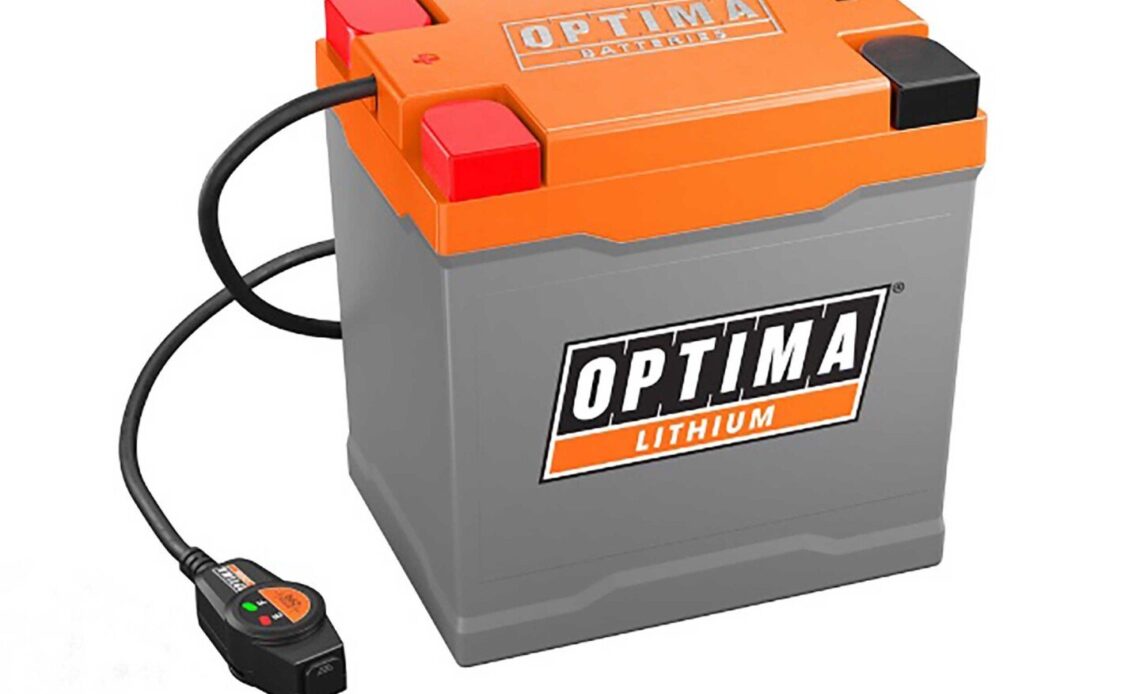Mention lithium batteries and the world instantly conjures up images of EVs and hybrid vehicles. That is not always the case, and batteries comprised of lithium iron phosphate (LiFePO4) technology have been creeping into more mainstream uses. Everything from motorcycles to recreational vehicles now has lithium battery replacements.
Considering the weight and power-density benefits that lithium batteries have over their lead-acid counterparts, that trend will only continue. While lithium power sources have many benefits, how to replenish all that power is quite different from their age-old counterparts. That is why Optima Batteries recently explained why you need a special charger for lithium batteries and we felt it was worth noting to our readers. If you would like to get all the details directly from the source, you can read more on the subject HERE. For those researching whether a lithium battery is the best choice for your application, Optima also has a battery finder on its website that can help you find the best battery.
So Why Do Lithium Batteries Need A Special Charger?
All battery types dole out the goods measured in amps and volts, but it’s the amounts of those battery characteristics that separate them, especially when charging. That is the first reason that lithium batteries require a special charger.
Lead-acid batteries sulfate as they are discharged. That is why, when charging a lead-acid battery, many chargers have a “desulfation mode,” which breaks up this layer of sulfate on the plates of lead-acid batteries. To do this, many chargers increase their voltage output, sometimes as high as 16 volts, which is higher than permitted with a lithium-based battery. Chargers for lithium batteries would generally stay below 15 volts in any of their charging phases. That is why they can still be charged by a vehicle’s alternator, but need special chargers otherwise.
Optima lithium ORANGETOP batteries automatically detect parasitic energy draws, disconnecting the battery, and retaining sufficient power to allow for one more start of the engine. They also feature an advanced microprocessor-controlled battery management system (BMS) to regulate all functions, providing proper cell balancing and monitoring cell state of charge for enhanced performance and a longer lifespan.
Charging a lithium battery is a bit of a balancing act as well. An unequal voltage among lithium battery cells can severely shorten the lifespan of the battery….
Click Here to Read the Full Original Article at DragzineDragzine…

